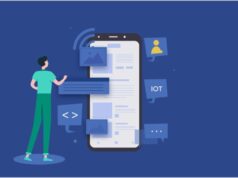A cup of coffee is a must-have start to the day for many, but people with diabetes may have concerns about how the brew could impact their blood sugar. Caffeine can raise it slightly, even if you don’t add milk or sugar to your mug. But not everyone with diabetes has noticeable changes in their blood glucose, and coffee can be a part of a healthy diet for those who have diabetes.
Does Coffee Raise Blood Sugar? Does Caffeine Raise Blood Sugar? In the short term, it can. Coffee can temporarily lead to a small uptick in blood sugar after drinking it, even when it doesn’t contain the carb-heavy extras like sugar, syrups, or creamers.e60dc2a1-f33c-4a05-9b50-8e3e8e5976290e0590dd-b87d-4f45-b98b-a9124ab44bbf And it’s not something your body will eventually adjust to: Even habitual coffee drinkers aren’t immune to the brew’s hyperglycemic effects.e60dc2a1-f33c-4a05-9b50-8e3e8e597629c90c705e-bbba-4a4b-864c-0f96fc8c2716 “Many of my clients are surprised that even black coffee may raise their blood sugar slightly,” says Vandana Sheth, RDN, CDCES , a Los Angeles–based diabetes consultant and plant-based nutrition expert. “Caffeine can trigger the release of hormones like adrenaline, which can cause the liver to release glucose into the bloodstream.” But not everyone with diabetes will notice a difference in their blood sugar from drinking black coffee. What’s more, the increase likely isn’t enough to make a big difference for your overall blood sugar control, notes Ethan Chandler, MD , a family medicine practitioner with Texas Health Family Care in Saginaw. Sheth says if you’d rather not give up that morning cup of joe, you probably don’t need to. “The key is to be aware of how your body responds and take action accordingly,” she says.
Carbohydrates in Coffee Carbohydrates in Coffee The real issue for coffee lovers with diabetes is the carbs found in the add-ins that make a bitter cup of black coffee more sweet and creamy, says Sheth: Sugar Flavored syrups Natural sweeteners like honey, agave syrup, or maple syrup Milk Nondairy milk Cream or half-and-half Dairy or nondairy creamer Whipped cream Keep in mind that the carbs found in beverages have the same effect on blood sugar as the carbs found in food.e60dc2a1-f33c-4a05-9b50-8e3e8e597629a3b98ca9-c8fa-4642-8d55-4b9275314dce If rapid sugar spikes happen regularly because of these add-ins, that increases your risk for diabetes-related complications , says Dr. Chandler. One study found that adults who frequently drank coffee with sugar and creamer were 1.5 times more likely to have trouble managing their A1C compared with those who typically drank black coffee or didn’t drink coffee at all.e60dc2a1-f33c-4a05-9b50-8e3e8e597629024e909d-b12f-41a9-bc9f-2fd6d0821920 Beyond the carbs, creamy, sugary coffee drinks also tend to be high in saturated fat, which can increase your risk for heart disease.e60dc2a1-f33c-4a05-9b50-8e3e8e5976298063d70f-f34b-44a1-93b9-4a4b4e58e34f “My general rule is, if you have diabetes, I advise you not to drink sugary drinks, including coffee drinks,” Chandler says.
Long-Term Coffee Consumption Long-Term Coffee Consumption Coffee may elevate blood sugar in the short term, but it has a different effect on the body over time. Research finds that drinking coffee may lower the risk for type 2 diabetes in the long run. People who consume 200 to 300 milligrams of caffeine from coffee daily (roughly equal to two to three 8-ounce cups of coffee) have a nearly 50 percent lower risk of cardiometabolic diseases including type 2 diabetes, heart disease , or stroke, found a 12-year study of nearly 188,000 adults.e60dc2a1-f33c-4a05-9b50-8e3e8e597629c7c8946a-39a1-46d5-9d10-1b16a30a3ff4 Other studies have found similar associations, enough to convince experts that there’s really something to this connection. One theory is that coffee’s phytochemical compounds support healthy liver function, which in turn might support better blood sugar control.e60dc2a1-f33c-4a05-9b50-8e3e8e597629ea59f4e4-e707-4983-bfd6-dbe5432b33ba However, these potential long-term preventive benefits are different from coffee’s short-term blood sugar effects in people who already have diabetes. So while it’s fine to drink black (or lightly sweetened) coffee as long as your body is okay with it, you shouldn’t assume that having coffee will improve your blood sugar or reverse your diabetes, says Chandler.
Navigating Morning Sugar Spikes Morning Sugar Spikes If you suspect coffee contributes to morning blood sugar spikes, these adjustments to how you consume it can help you keep them better controlled. Be mindful about your insulin use. If you typically take insulin in the morning, you may need to use it before having coffee. Chandler suggests working with your doctor to determine the best morning regimen for you. Avoid overly sweetened coffee drinks at the coffee shop or grocery store. It’s not uncommon for a coffee drink to look and taste like a milkshake — and have as many carbs. Drink water first. Drinking a glass of H2O before having your coffee supports healthy glucose metabolism, and being dehydrated can make your blood sugar go up, says Sheth. Watch your sweeteners. Stick with 1 teaspoon or less of caloric sweeteners like sugar or honey. Or swap the sugar out for a no-carb sweetener like stevia, sucralose, or monk fruit, Sheth recommends. Choose a nondairy milk or cream. Unsweetened plant milks like almond or soy milk are lower in carbs than dairy milk. Avoid oat milk, which is higher in carbs, says Sheth. Combine your coffee with exercise. Taking a short, brisk walk after your coffee can help keep blood sugar spikes in check.e60dc2a1-f33c-4a05-9b50-8e3e8e59762911079436-8f33-4341-b33f-ac8e812a4670 Rule out the dawn phenomenon . Some people with diabetes experience daily morning blood sugar spikes (sometimes called the dawn phenomenon ) that have nothing to do with coffee or breakfast. If your blood sugar regularly seems higher than it should be in the morning, talk with your doctor. Together you can talk about adjustments that can help better manage the spikes.
The Takeaway Regular coffee consumption can cause minor spikes in blood glucose levels due to its caffeine content, but not everyone with diabetes will experience noticeable changes. Sugar and carb-rich additives like syrups and creamers can significantly increase blood glucose. Opt for low-carb alternatives such as unsweetened plant milks and low- to no-calorie sweeteners instead. Long-term studies link moderate coffee consumption to a lower risk of type 2 diabetes, but these benefits don’t mitigate the need for careful blood sugar monitoring if you already have diabetes. To help avoid morning blood sugar spikes caused by coffee, try pairing it with fiber-rich foods, drinking water first, and skipping heavily sweetened options.
Resources We Trust Cleveland Clinic: How to Follow a Diabetes-Friendly Diet Mayo Clinic: 10 Surprising Things That Can Spike Your Blood Sugar Harvard T.H. Chan School of Public Health: Is Coffee Good or Bad For Your Health? Centers for Disease Control and Prevention: Rethink Your Drink U.S. Food and Drug Administration: Spilling the Beans: How Much Caffeine Is Too Much?









